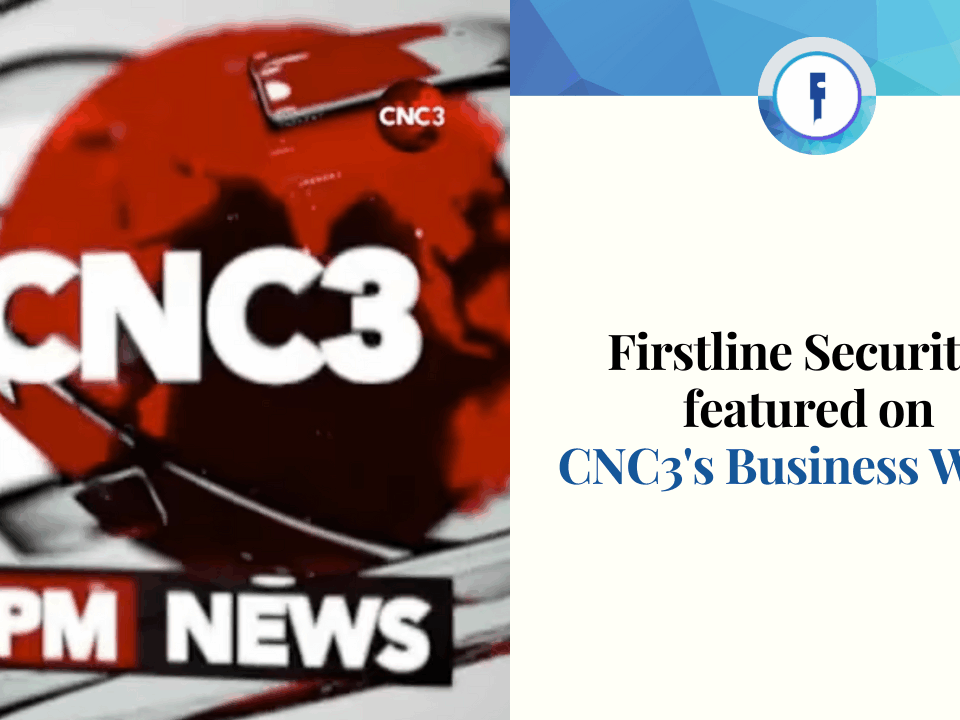INSIGHTS
THE 411 ON BUSINESS FRAUD – PART FOUR


Twelve Classic Signs you are about to be the Victim of a
Business Loan Scam
A Firstline Securities Limited Blog by: Mike
Let’s Go!
In this final blog entry in our series on business fraud we identify 12 classic signs that you are about to be the subject of a business loan scam.
1. The lender asks you for an upfront fee
Never consider transferring money up-front for the purpose of acquiring a business loan without performing due diligence.
If you are obtaining a business loan through a broker (see the third entry in this blog series and further below), request that the broker get paid by the actual lender of the funds and not the borrower, and that payment be made after the deal has been completed.
If the broker refuses this request, consider the need to perform additional due diligence and/or terminate the business relationship.
2. You cannot find contact information for the lender online
Avoid all lenders who don’t have a physical address, fixed telephone number, company email address, or easily found contact information online.
3. The terms of the loan sound too good to be true
If a business loan looks too good to be true, then the chances are it is too good to be true.
While legitimate business lenders are constantly competing with one another in order to offer the “best deal”, they have limits with regard to how far they will go and certainly won’t offer a deal whereby they end up losing money.
4. Non-traditional forms of advertising
It is very rare for legitimate business lenders to solicit business directly using a platform like Facebook, Reddit, Craigslist, or LinkedIn. Any approach through these platforms should be treated with the highest degree of scepticism (note that this is not to say that banks do not advertise on social media, but they certainly would not contact you through these channels).
If you see advertisements for business lending in those arenas the chances are that they are not legitimate, and you should carefully consider avoiding them.
5. The terms of the loan are overly complicated
Business loans are simple instruments.
If the lender starts talking about investments, credit enhancements, loan insurance, or fund managers (a person who would manage the proceeds of a business loan used in a long-term project like the construction of a Mall) consider walking away.
6. The lender has access to the funds he proposes to lend to your business
Be wary of business loans that allow the lender to access the funds that have been loaned to you and not yet utilised in order to make short-term investments on the basis that allowing the lender to access the funds loaned and not yet utilised enhances your loan by reducing the overall risk and therefore the cost of the loan advanced (often referred to as “credit enhancement”).
7. The lender guarantees approval
Legitimate lenders simply cannot guarantee approval because they have credit approval and risk management processes that need to be completed before a loan can be advanced.
If you see advertising or receive contact from a lender that promises “guaranteed approval” then you have almost certainly been approached by a “lender” who intends to scam you.
8. The lender uses a free email address rather than a company email address
Genuine business lenders don’t use generic email addresses like Hotmail, Yahoo, or Gmail.
Some more sophisticated scammers will create websites that have valid email addresses linked to those websites. In this instance perform proper due diligence to establish that they are a bona fide lender.
Consider requesting references from bankers and previous clients, and in order to establish the true identity of the person, request certified copies of passports, and proof of physical address as part of your own due diligence procedures.
9. Unsolicited contact
If a business lender that you retain no existing relationship with offers you an unsolicited business loan, there is a high-likelihood that they are attempting to scam you because legitimate lenders rarely offer loans to non-clients with a cold-call.
10. The lender is aggressive and persistent
If the lender seems too eager and is contacting you frequently in an effort to pressure you into taking a business loan then trust your instincts, take a step back, and do further due diligence on the loan provider.
Any lender that won’t allow you sufficient time to make a business decision should be avoided.
11. The lender is not a lender at all but an intermediary or broker
Many business loan scams are perpetrated by individuals claiming to be an intermediary for a large lending institution.
If a lender claims that this is a case, they should be able to provide you with the name of the lending institution they are acting as an intermediary for and the name of a senior person at that lending institution that can provide a reference that they are legitimate.
12. Lack of physical address for the business
If a lender has a website carefully look at the contents of the website to ascertain whether the lender has offices and a physical address.
If you find an address for the lender check to see that it is actually a business office and not a forwarding address or serviced office that offers a simple business address. Google is an excellent resource in this respect because it often provides a map and picture of the lender’s business premises.
Check any business address online to see if that address has been associated with business scams in the past.
In other words, perform some simple due diligence.
Always remember that legitimate lenders will have no problem providing you with a valid business address.
Send us your comments – have you suffered from a business fraud?
Send us your comments – we’d love to read your opinion!
Firstline Securities Limited offers comprehensive coverage of local and international markets with many unique opportunities to put surplus cash to work either as your asset manager or investment advisor. Please contact us for more details at info@firstlinesecurities.com or at 868.628.1175. We can discuss your investment needs in detail and craft a portfolio that makes sense for you. We look forward to hearing from you.

